|
The material on this website is intended for educational use only and may not be reproduced for commercial purposes without express permission from the appropriate copyright holder.
Le contenu de ce site Web est destiné à des fins pédagogiques seulement et ne peut être reproduit à des fins commerciales à moins d'en avoir obtenu la permission du titulaire du droit d'auteur approprié.
"If a man will not work, he shall not eat."
Bible, 2 Thessalonians 3:10
"Until the twentieth century state-supported social welfare programs were virtually non-existent. In the largely rural Canada of the nineteenth century help for the poor, sick and aging member of the community was provided by the family and by local religious and charitable organizations. Increasing urbanization and industrialization did little to change the prevailing view among Canadians that those who needed financial assistance and health-care services were the responsibility of relatives and friends rather than the state . . . [however eventually] urban environment families and charitable institutions were unable to provide sufficient funds and services. The state was called in to fill the gap."
Alvin Finkel

%20Wellcome.jpg)
The poor man's friend (Death) Welcome, See page for author, CC BY 4.0 <https://creativecommons.org/licenses/by/4.0>, United Kingdom, 1850?, via Wikimedia Commons

Queen's Birthday Toronto Reference Library 185.Queen'sBirithday.vs
"At the time of Confederation . . . "social problems" were then viewed as the natural concern of the family, local community or church rather than the state. . . Frontier conditions placed a premium upon self-reliance, which was a tenable doctrine when a family or community produced and consumed most of the goods which it needed. . . .Those who for any reason were unable to make their own way were apt to be looked down upon as lazy or weaklings."
Elizabeth Wallace
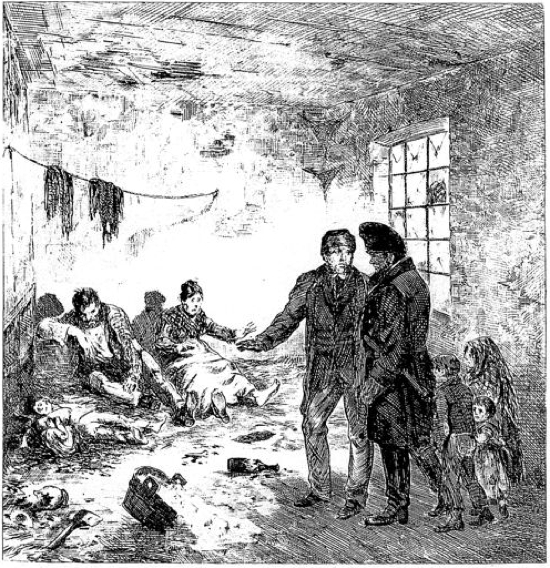
'FROZEN TO DEATH -- '. LAC C-058456, Canadian Illustrated News, Montreal, 27 January 1872
"The moment a Government is asked to take charge and feed the poor you strike a blow to their self-respect and independence that is fatal to our existence as a people."
MP during a debate in 1876
[80% of Canadians at the time were fishermen and farmers, quite able to look after themselves]
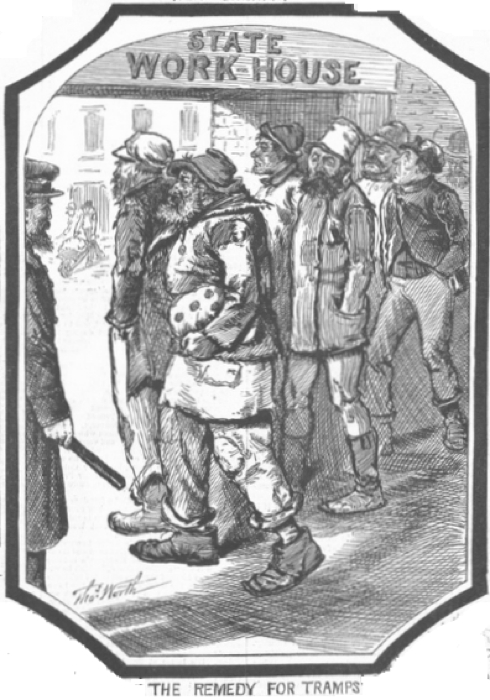
Harper's Weekly, New York, 4 May 1878
"The very worst thing a government could do would be to teach the unemployed to look to them for aid . . . The Government should be dependent on the people not the people on the government."
Carroll Ryan, Canada Monthly, 1879


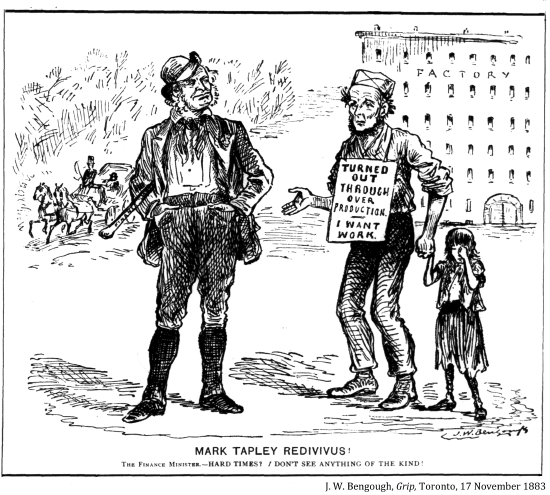
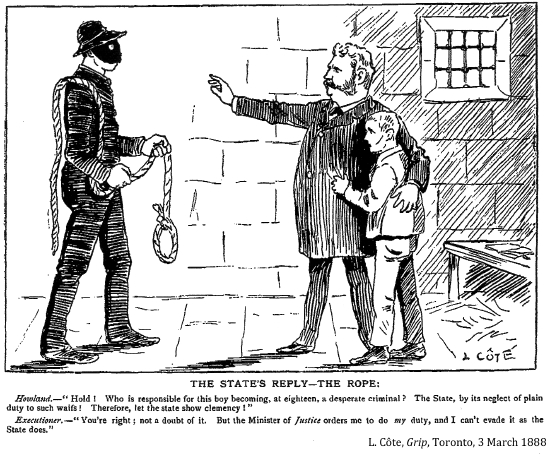


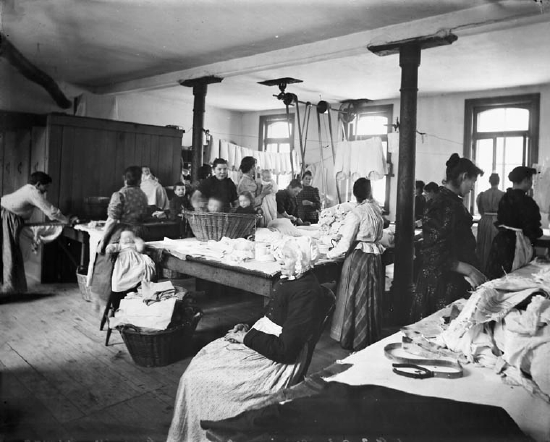
Ironing Room, Home for Friendless Women, Ottawa, William James Topley, Photographer, February 1895
"The most demoralizing and illegitimate function of a government is either to step in and do the people's work for them . . . or in forcing one portion of the people to contribute to the support of another."
Adam Shortt, The Queen's Quarterly, July 1895

Puck, New York, 23 August 1899
2%20Internet%20Archive%20Book%20Images%20No%20restrictions%20via%20Wikimedia%20Commons.jpg)
Blasts from The Rams Horn Chicago (1902) Internet Archive Book Images, No restrictions via Wikimedia Commons
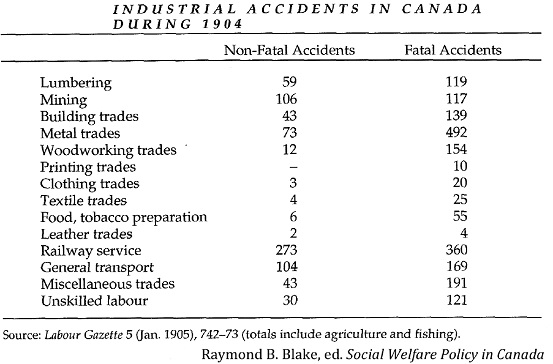
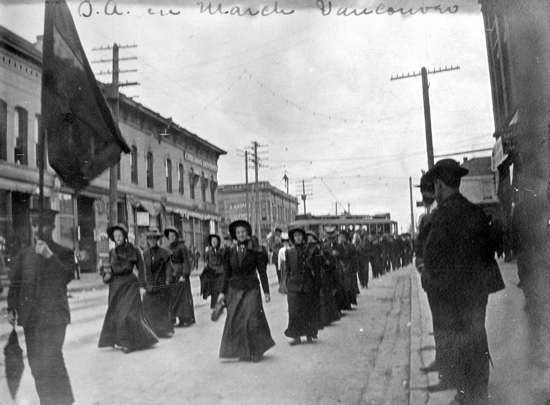
Salvation Army on March Vancouver, Hannah Knudson, 1905, City of Vancouver Archives, AM1376-F14--CVA 312-36
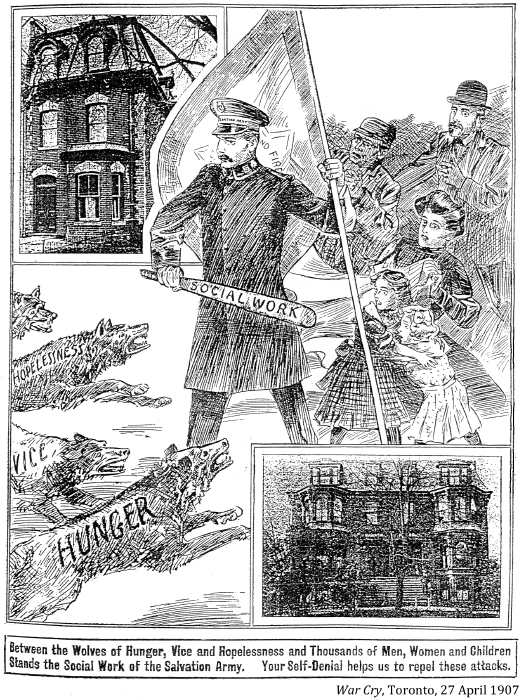
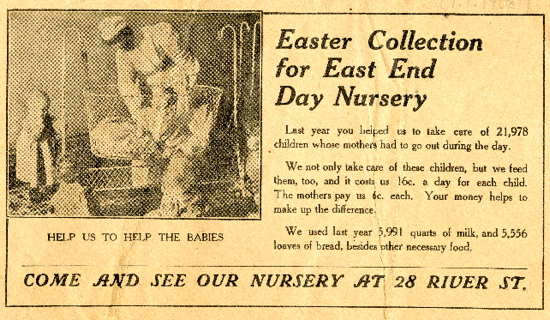
Easter collection for East End Day Nursery, 1908, Digital Archives Ontario

Ward Savage, Fernie BC Ledger, 23 May 1908

Toronto Free Hospital Toronto Reference Library ca.1910. Hospital. TB. 1910
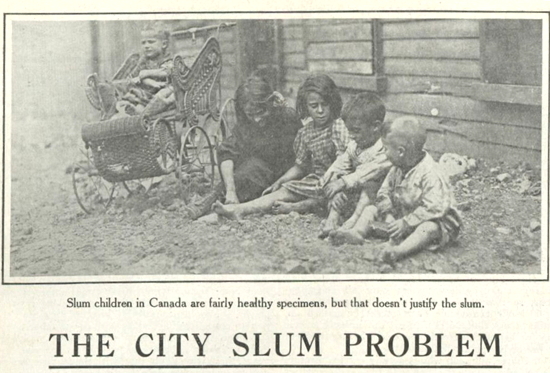
The Canadian Courier, Toronto, 30 September 1911
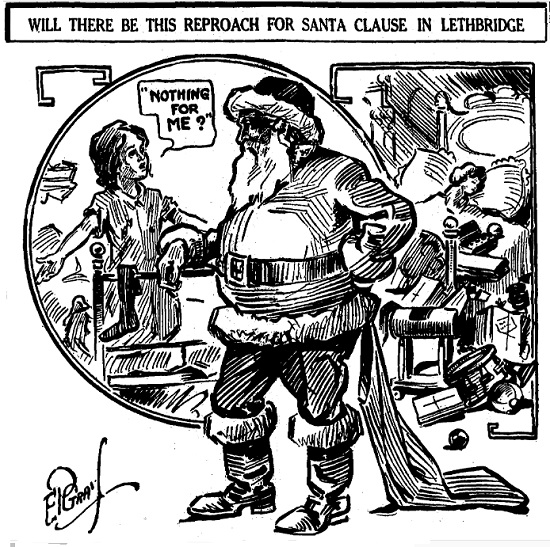
Lethbridge Daily Herald, 7 December 1912

Patriotic Fund, 1914-18, LAC e010697255
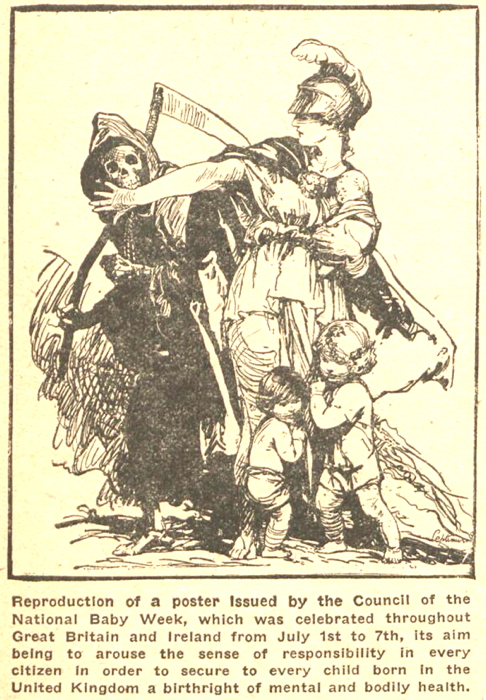
[WHY WASTE THE BABIES?
In England our of every 1000 babies conceived, 250 – that is one quarter die before birth or during the first year of their extra-uterine life. Ten per cent of all children entering elementary school are physically unfit, and approximately one million men have been rejected by the army because they are physically unfit.]
The Canadian Courier, Toronto, 25 August 1917

Life, New York, 20 January 1916
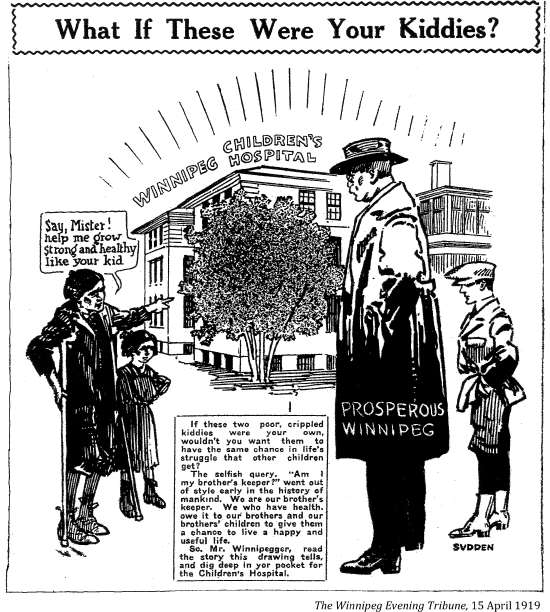

Elks Club Christmas Hampers, City of Vancouver Archives, 1920, AM1535--CVA 99 – 3267

Taxpayer, Windsor McCay, 1920s
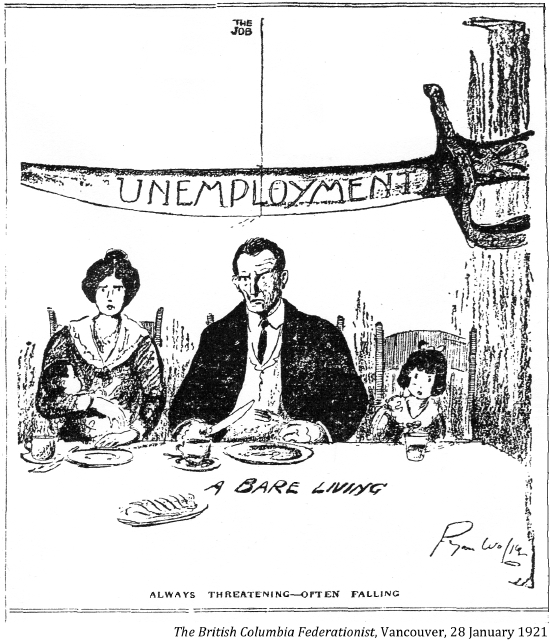
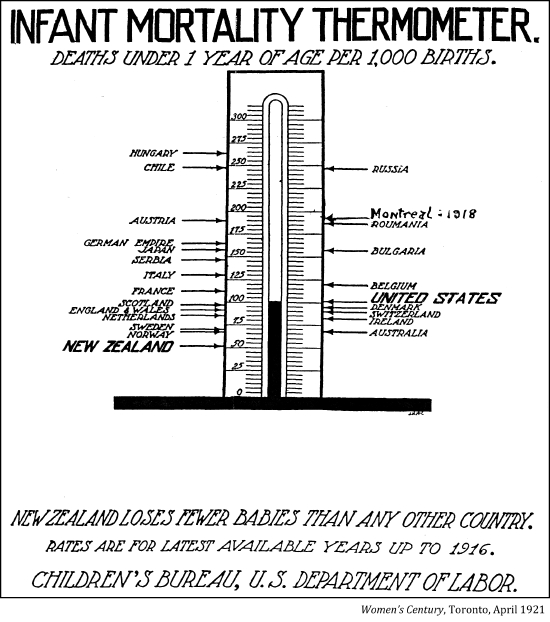

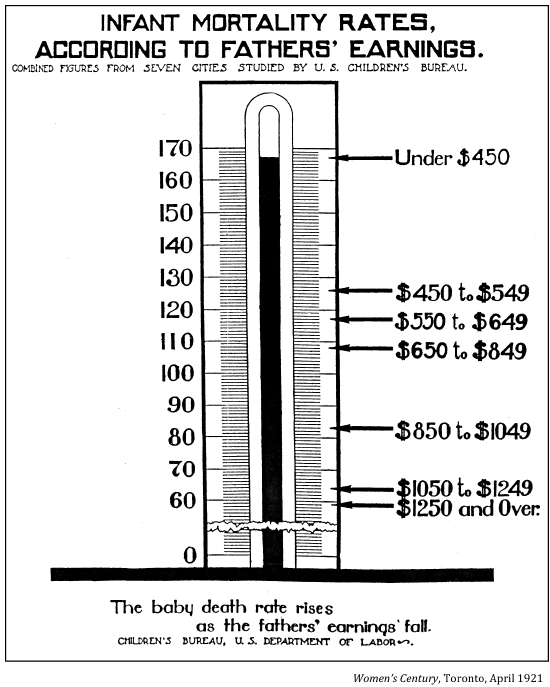

"I claim that we have come to a period in the history of our county when we must decide once and for all which shall prevail – profits or human welfare."
James S. Woodsworth, March 1922

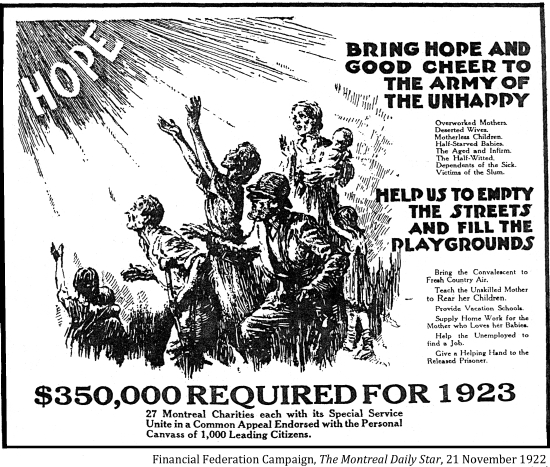
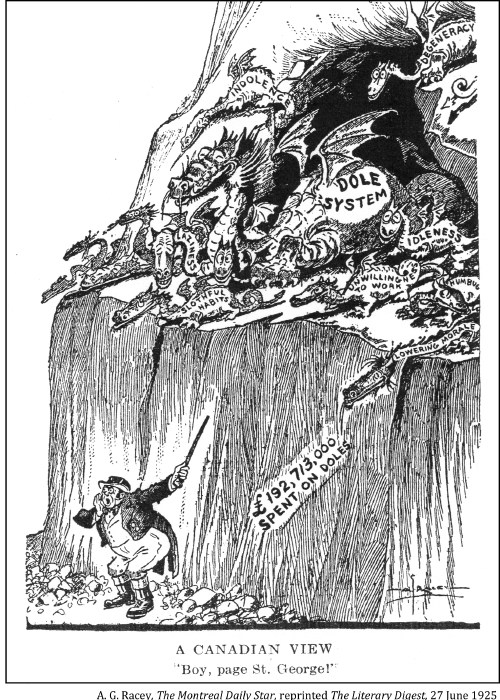



"[In 19th century Canada] charity was the responsibility of the churches, not the government. . . Non government enacted any social legislation in Ottawa until 1927. . . social programs were nobody's business except for the churches and individual do-gooders–– until the Great Depression."
Richard Gwyn, Nation Maker Sir John A. Macdonald
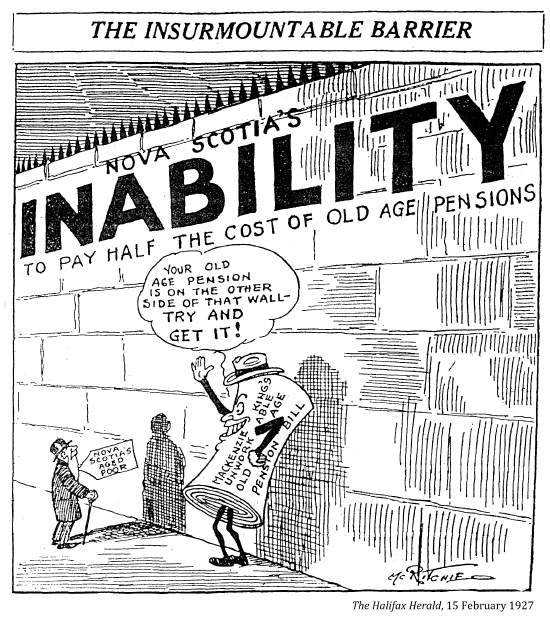
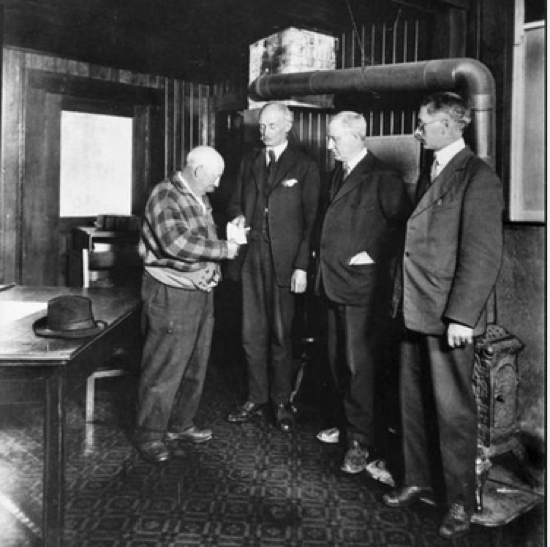
The first old-age pension cheque paid in the Dominion of Canada, Alberni, 23 September 1927, BC. BC Archives B-08022
[Canada's old age pension paid a paltry $20 each month to needy Canadians over 70 who had passed a humiliating means test. This lasted until 1951.]


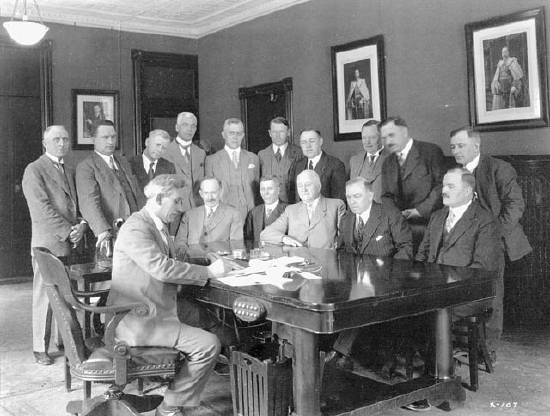
Signing of the Dominion-Provincial Agreement on Old Age Pensions. Signature de l'entente fédérale-provinciale sur les pensions de vieillesse . (Seated, L-R): Hon. Peter Heenan, Thomas Donnelly, John Millar, Hon. W.R. Motherwell, Rt. Hon. W.L. Mackenzie King, Hon. C.A. Dunning. (Standing, L-R): Fred Johnson, John Vallance, Ed Young, C.R. McIntosh, Robert McKenzie, Gordon Ross, A.F. Totzke, George McPhee, Malcolm McLean, William Bock, 18 May 1928, LAC C-013233
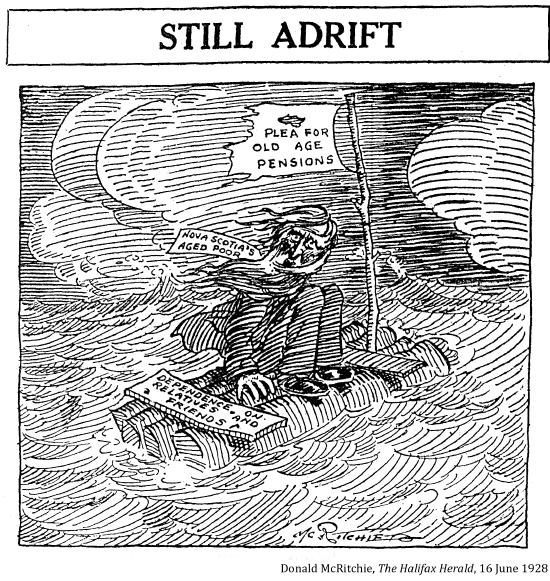





A.G. Racey, Montreal Daily Star, 1930
"The difficulty about all these matters is that too much reliance is being placed upon the Government. The people are not bearing their share of the load. Half a century ago people would work their way out of their difficulties rather than look to government to take care of them. The fibre of some of our people has grown softer and they are not willing to turn in and save themselves."
R. B. Bennett, 1930
"The promises of yesterday are the taxes of today."
William Lyon Mackenzie, 1931

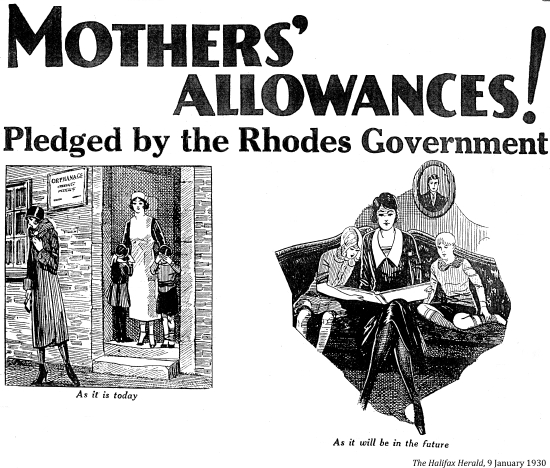


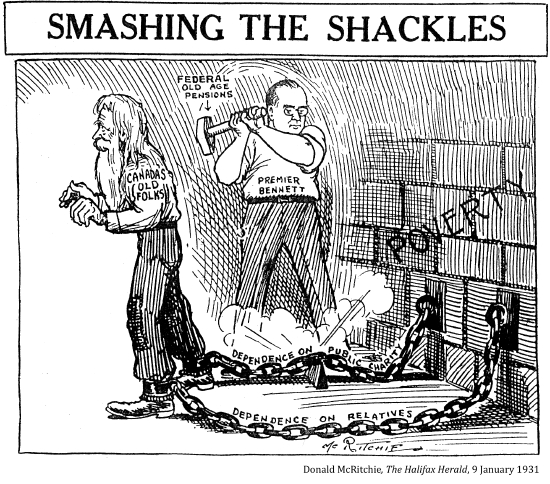
"'There is a rich man's tuberculosis and a poor man's tuberculosis.' The rich man recovers and the poor man dies."
Norman Bethune, July 1932

"They knew where to find the money for war. Why could it not be found for peace."
Maxime Raymond



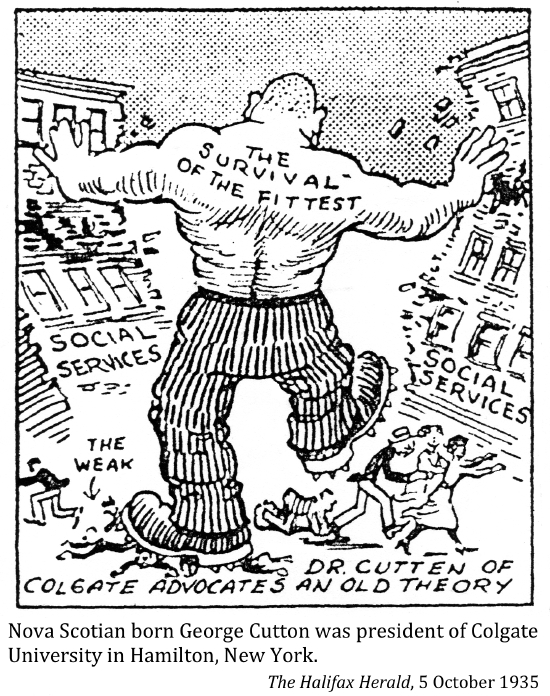

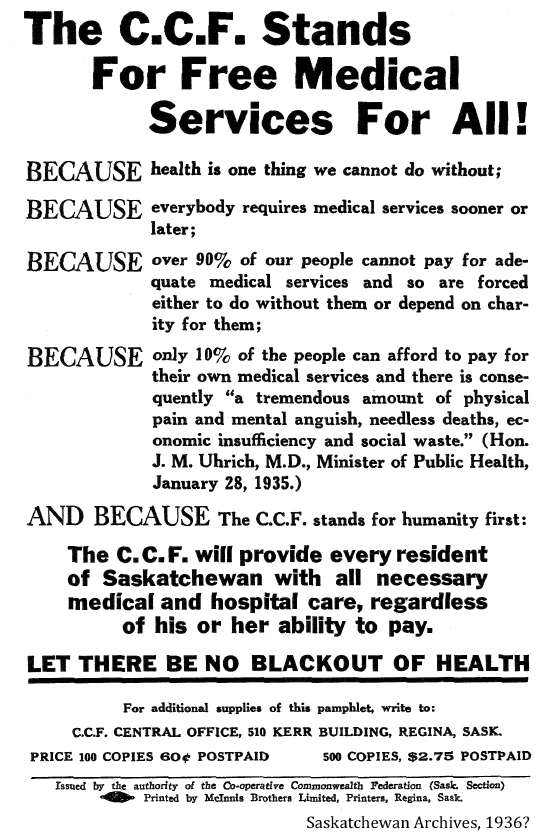



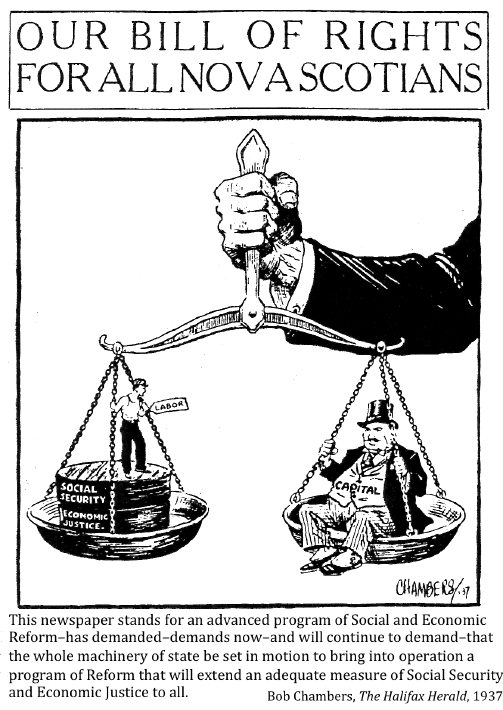
"When a House of Industry was ultimately established in Toronto in 1837, its purpose to provide relief to the 'industrious' deserving poor, removing beggars from public thoroughfares, and instilling in the indigent 'principles and habits of industry and moral virtue' . . . at the least possible expense. . . the House of Industry also expanded its operations, opening a soup kitchen for the poor in the late 1850s. An Orphans' Home, Boys and Girls homes, and a Female Aid Society supplemented the charitable role of the Home by the 1860s."
Bryan Palmer and Gaétan Héroux, Toronto's Poor
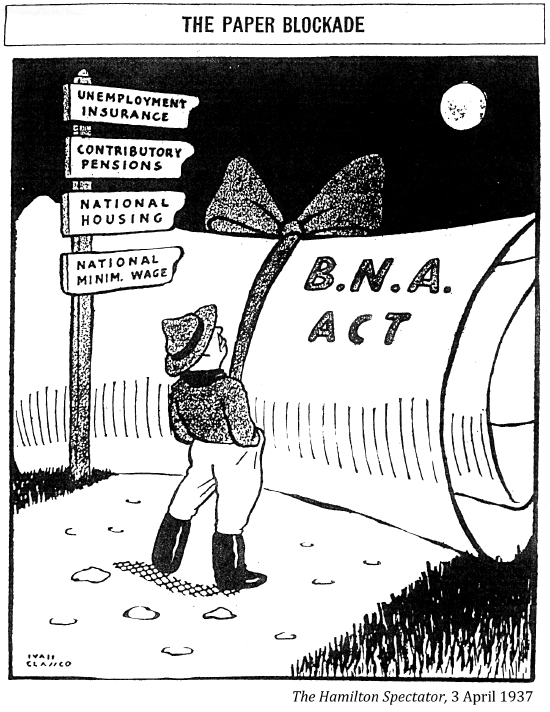

Nation's Business, Washington, D.C. May 1937


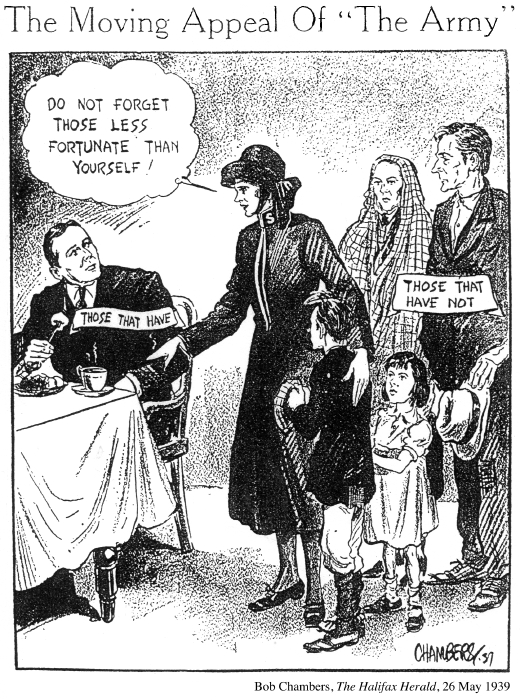
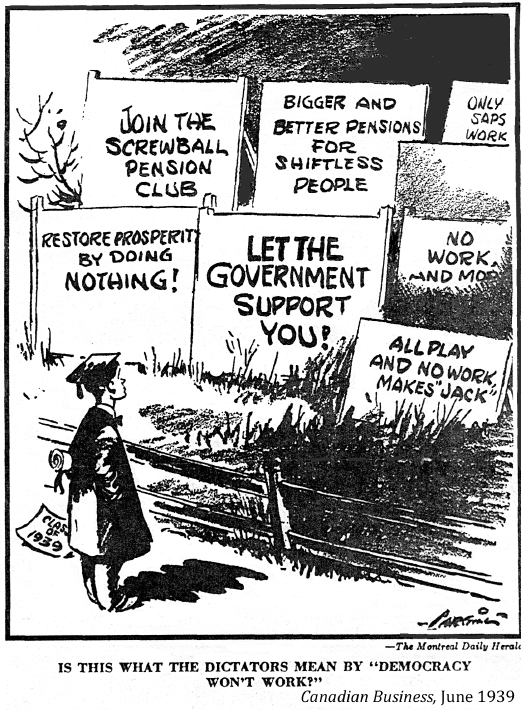
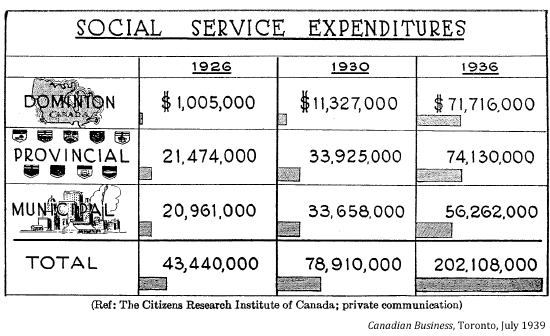
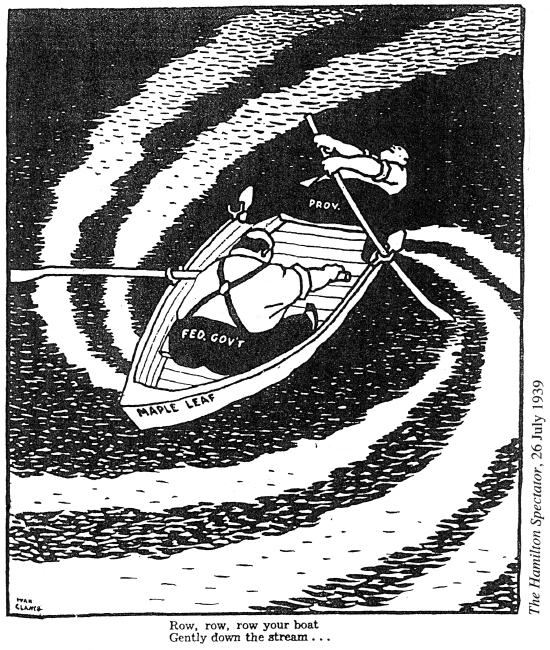
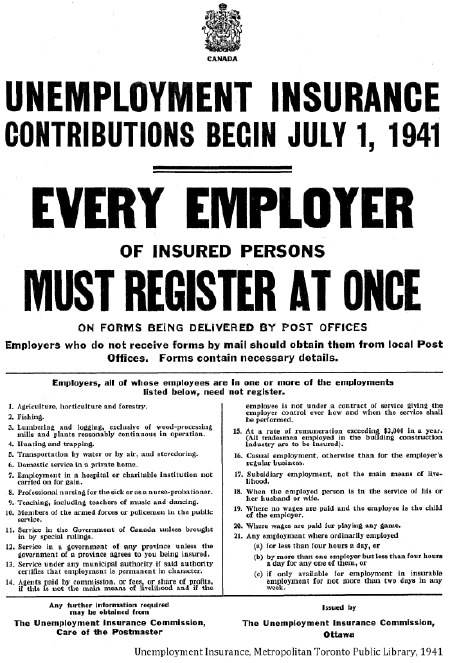

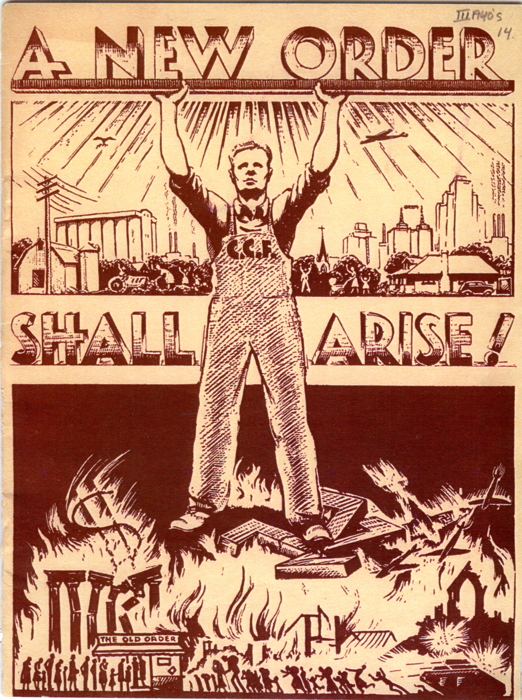
The Federationist, Vancouver, 30 January 1941


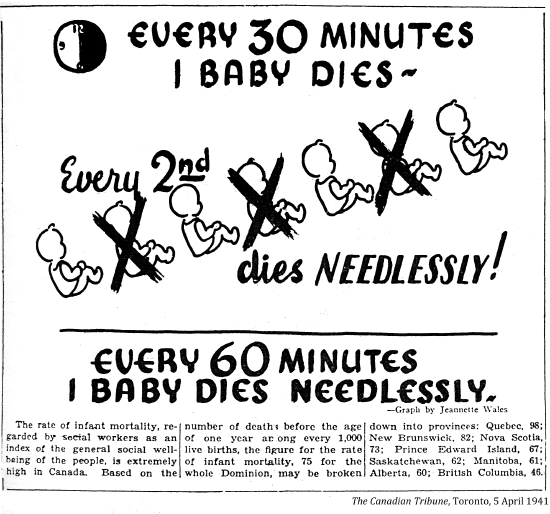
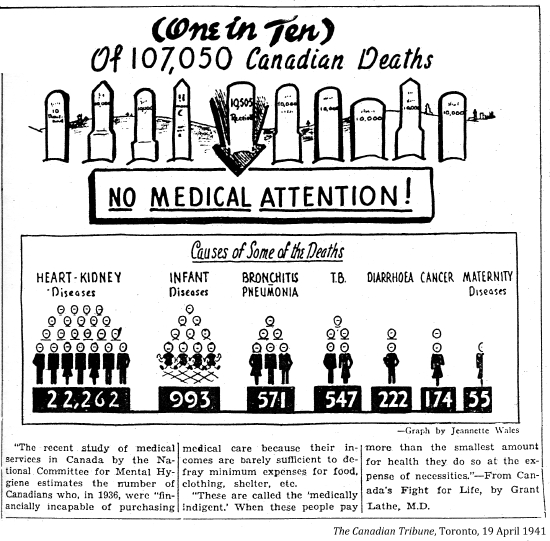

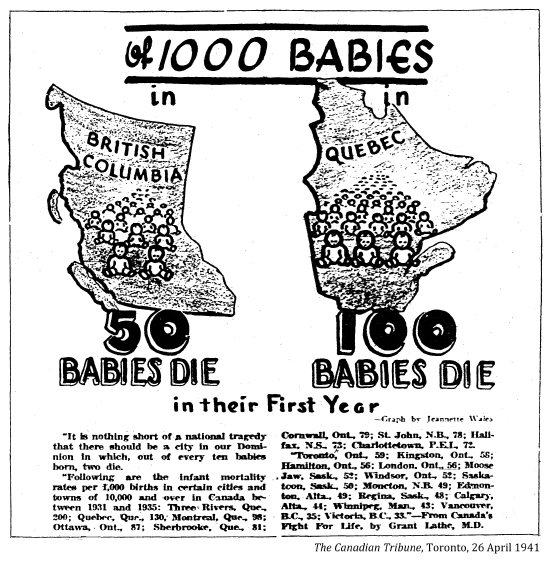



"We desire to bring about the fullest collaboration between all nations in the economic field with the object of securing, for all, improved labour standards, economic adjustment and social security."
Atlantic Charter, 14 August 1941 [set out American and British goals for the world after the end of World War II]
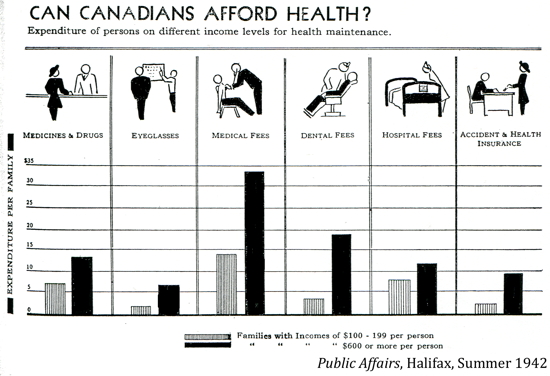

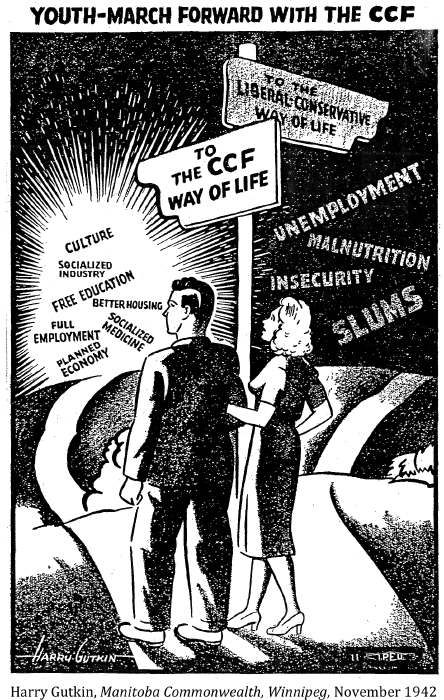

Nation's Business, Washington, DC, December 1942

Welfare Federation Appeal billboard, City of Vancouver, 1943, AM1184-S3--CVA 1184-771
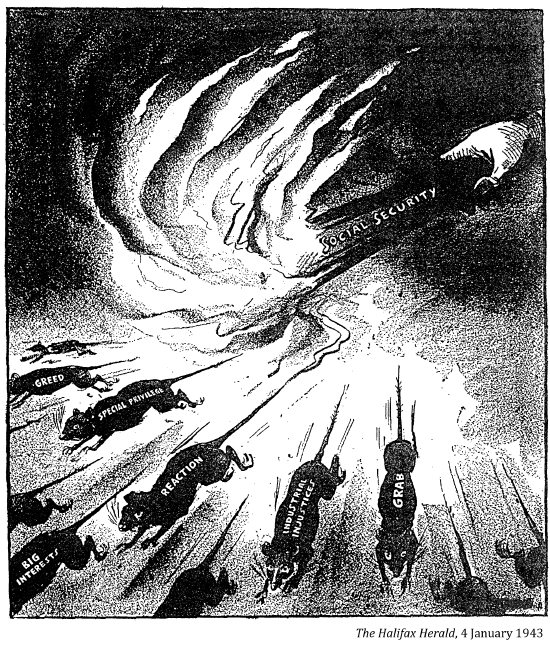


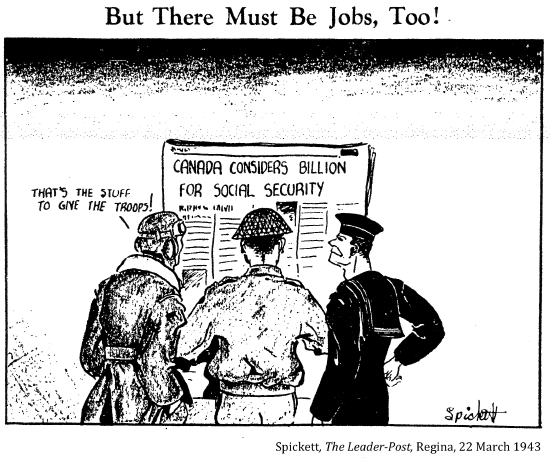


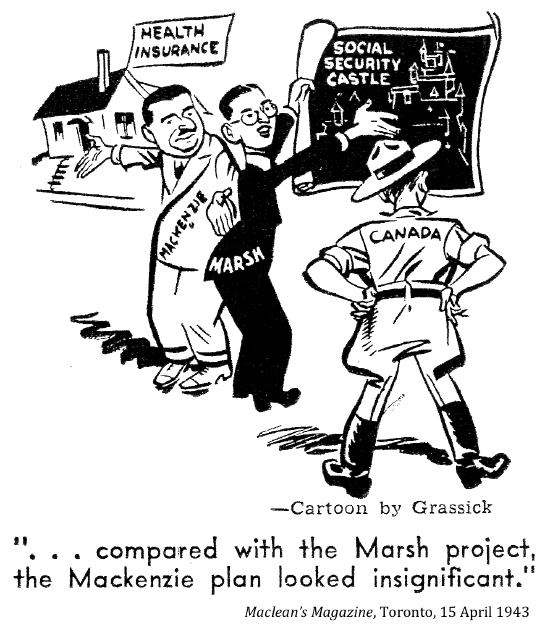
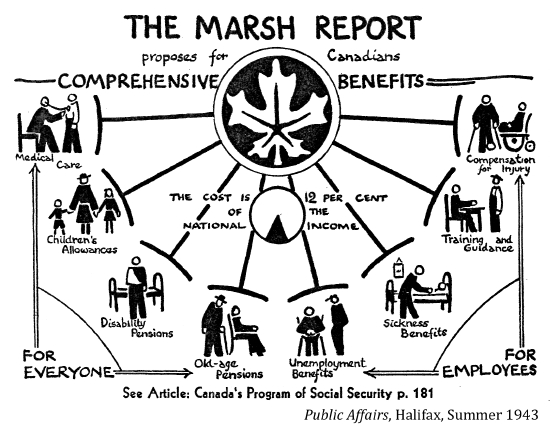

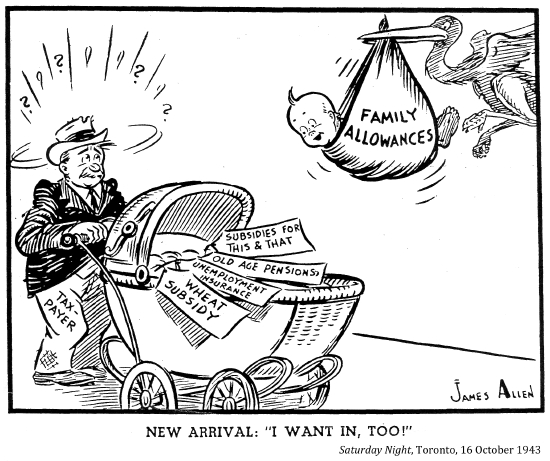

"[Health care] is something to which people are entitled by virtue of belonging to a civilized community."
Tommy Douglas


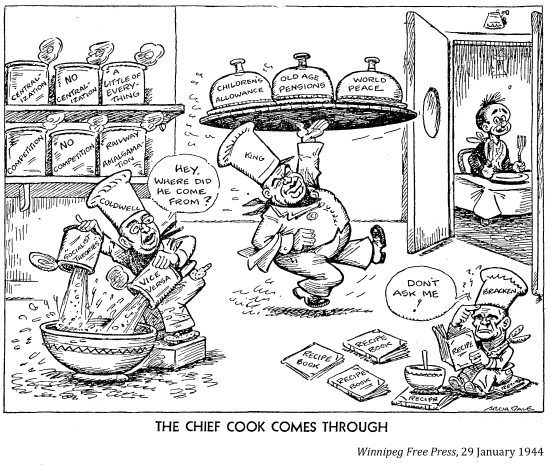
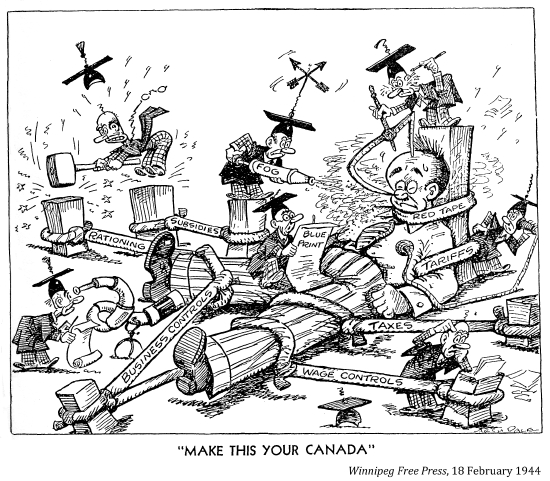
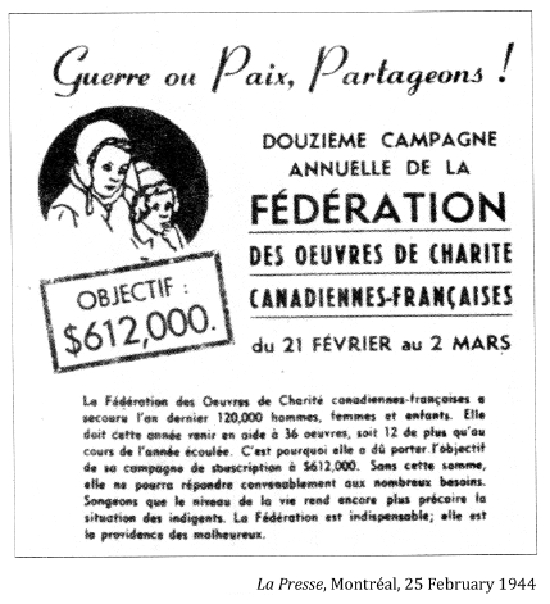
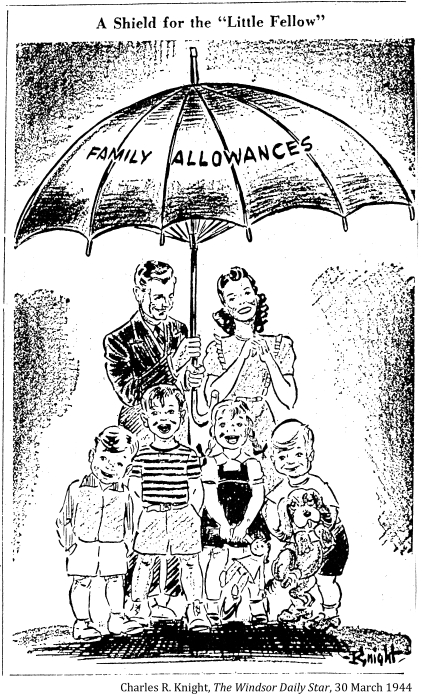






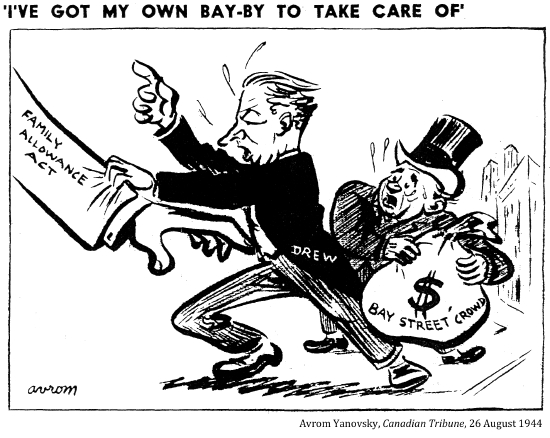


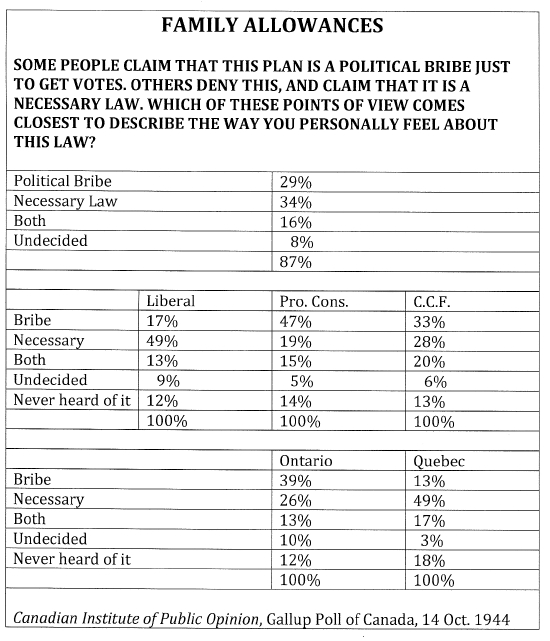
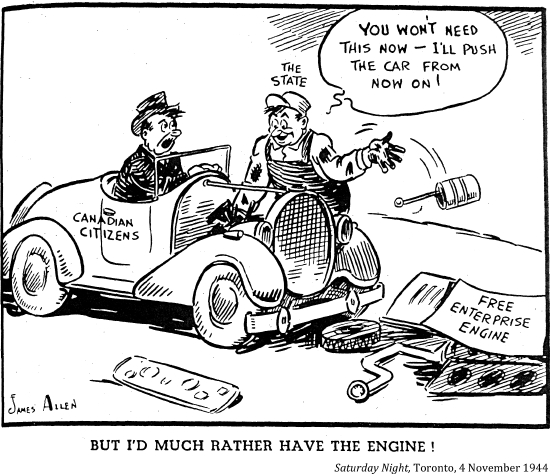
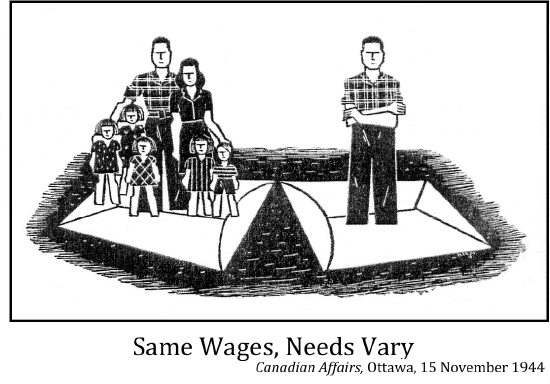

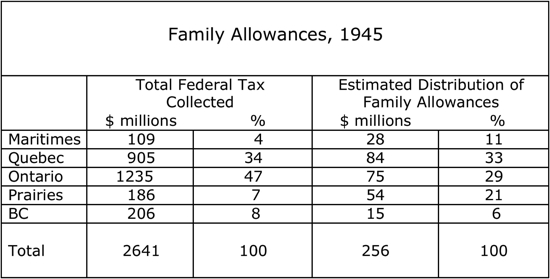
Family Allowance: A Children's Charter, National Health and Welfare, Ottawa, 1945
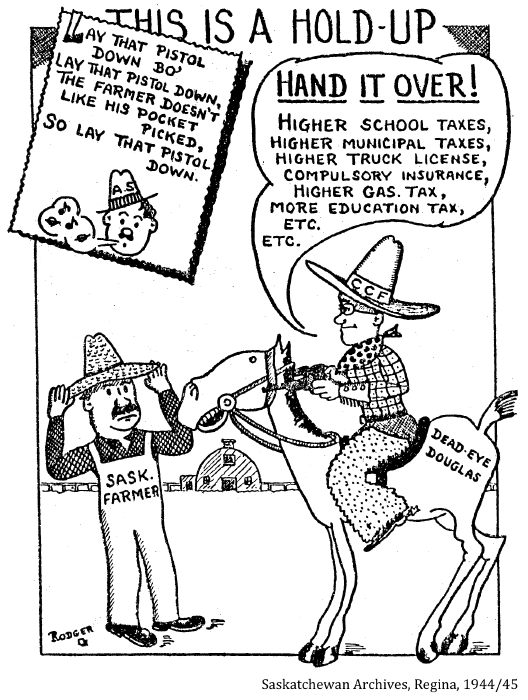

1945
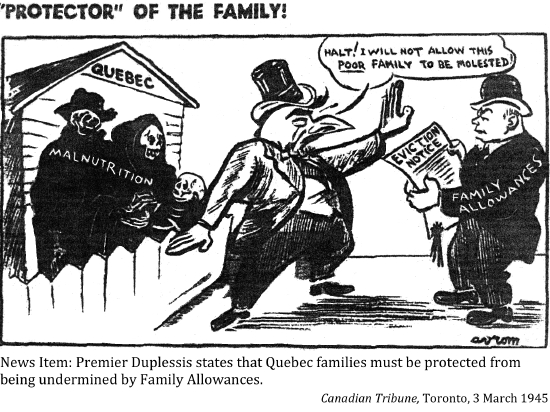







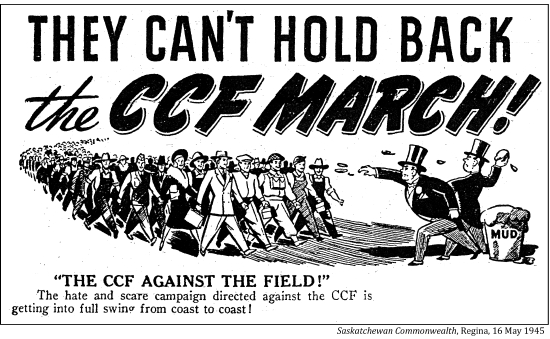



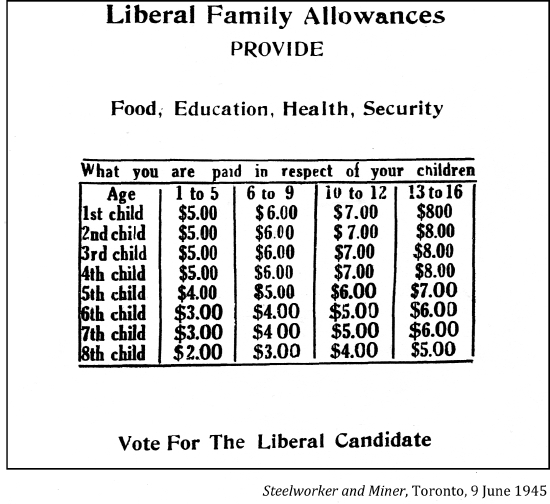


Will a "Baby Bonus" Safeguard Child Victims of Profit System
The Militant, New York, 23 June 1945


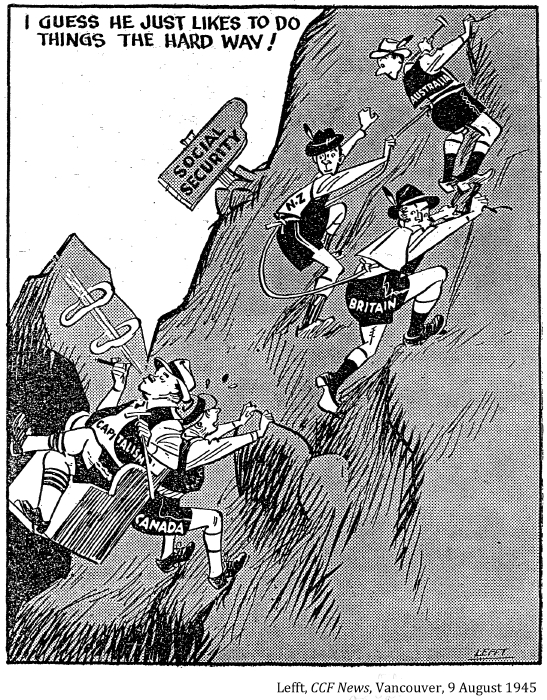


"During the Depression and war years, 1930-1945, Canada became a welfare state."
Allan Irving
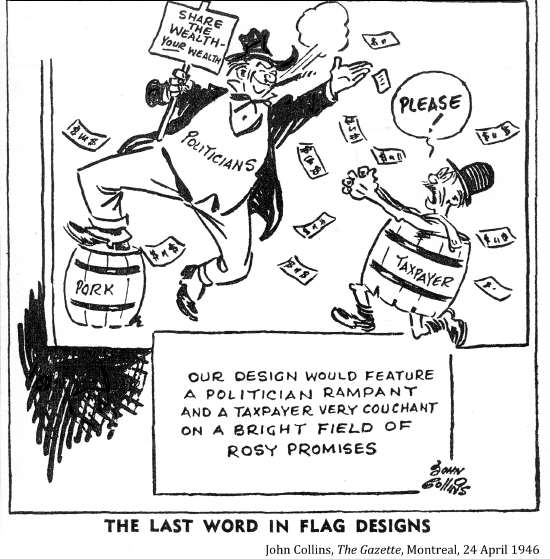
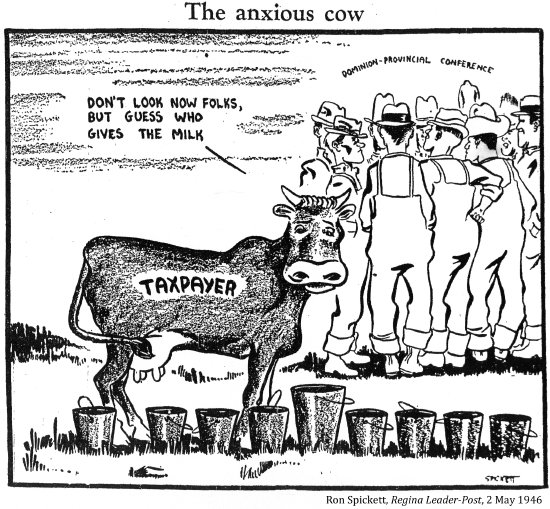
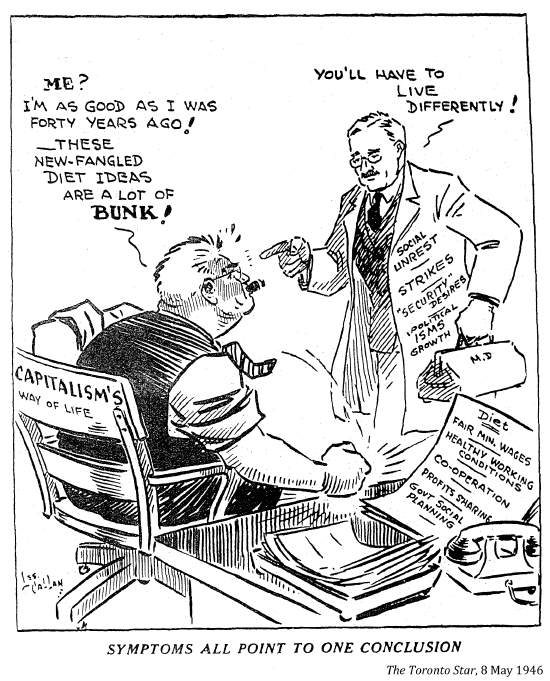
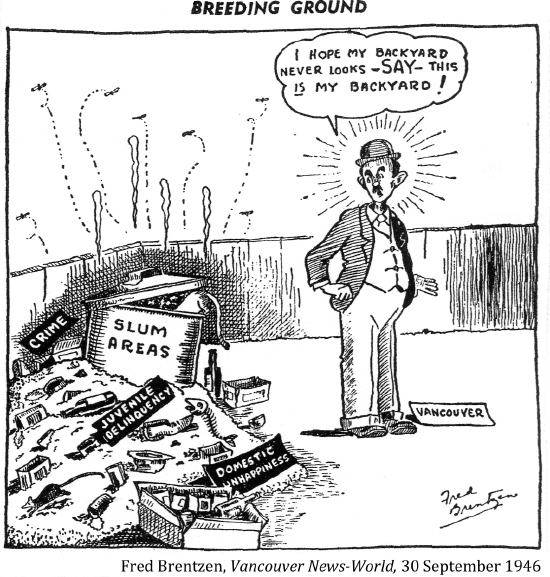





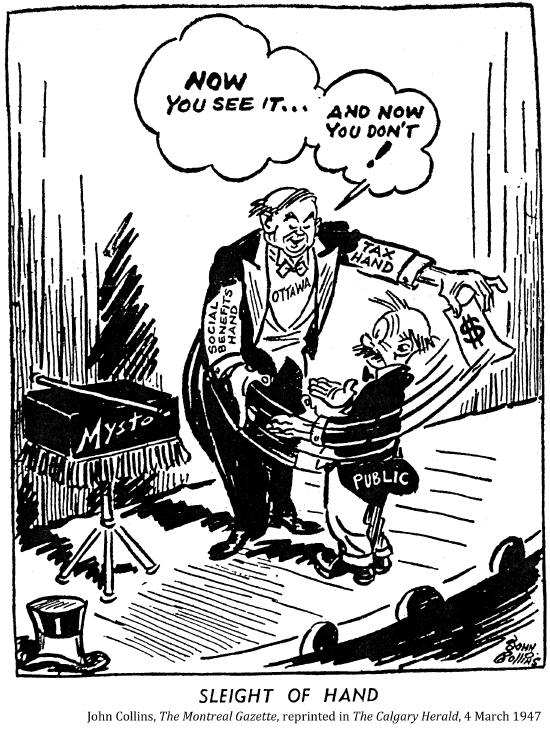
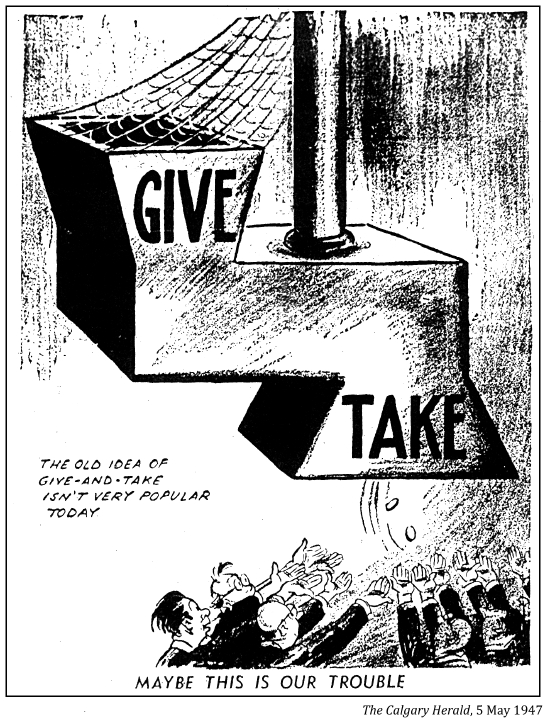


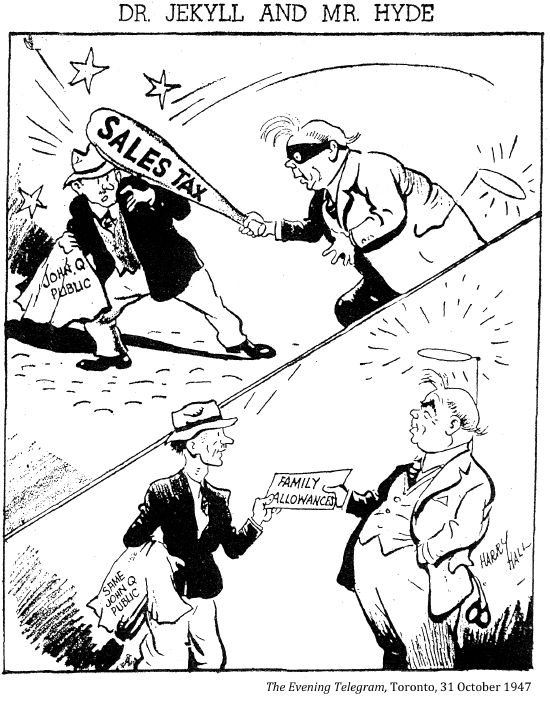

Socual Security for All, CCF, 1948 [?]

194_ LAC e01080076

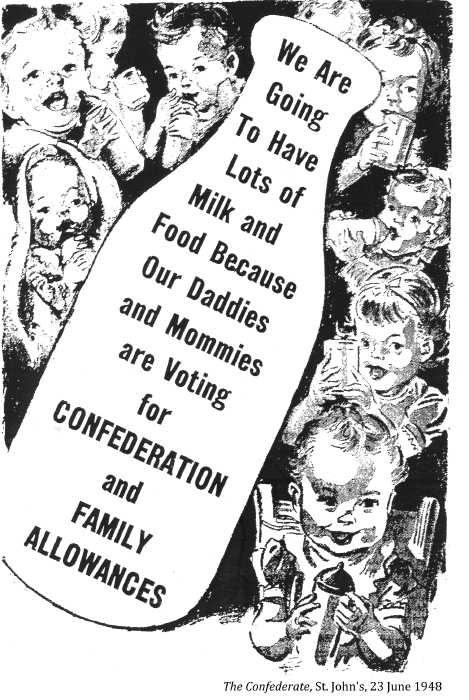

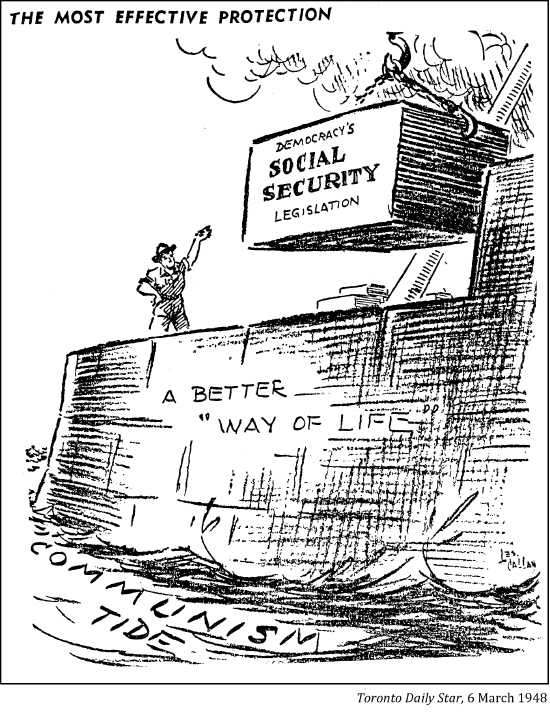







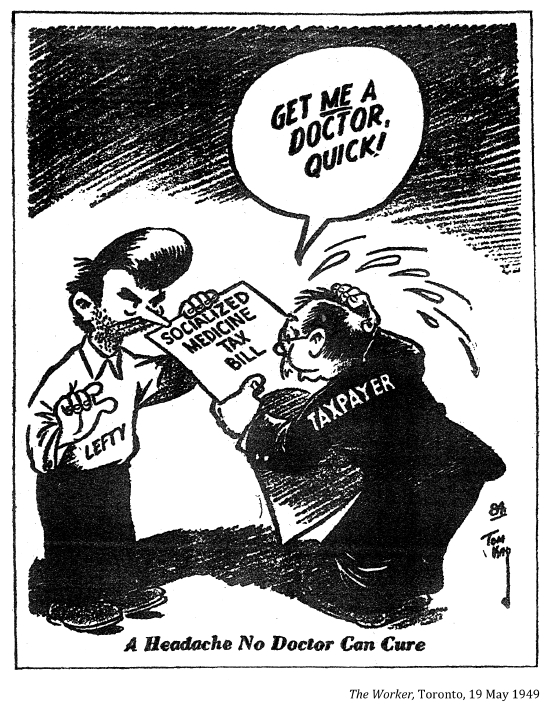






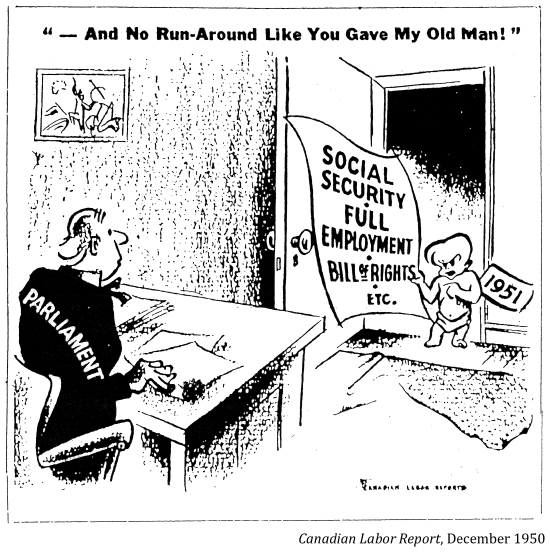




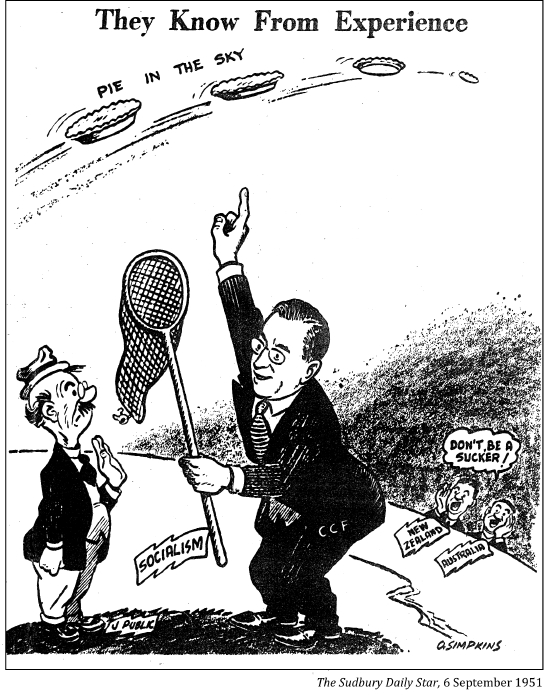












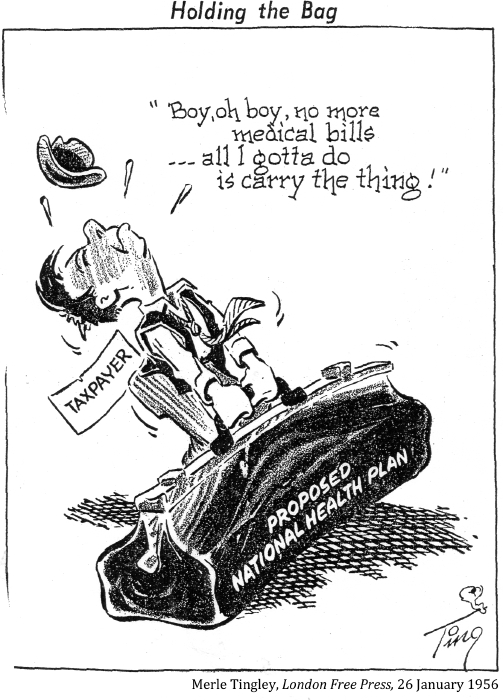









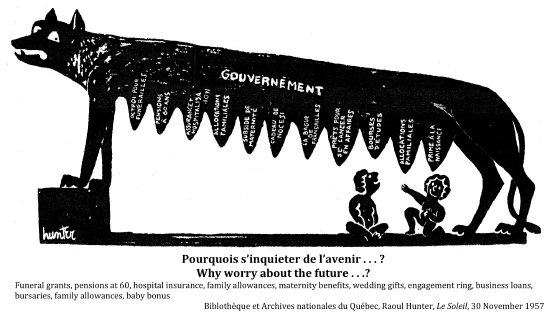
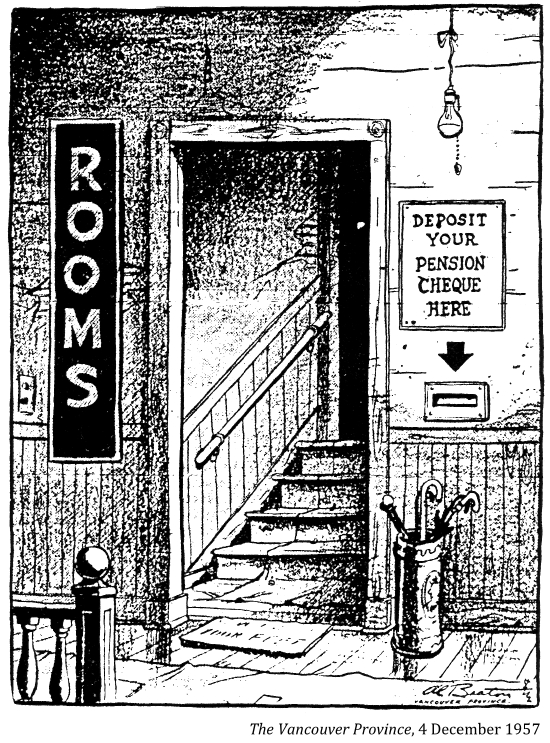


Love Me, Love my Doggie. LAC R4515-103, The Telegram, Toronto, Al Beaton


"Toronto's House of Industry . . . introduced, in the 1860s, a work test, implementing a woodcutting regime. 'By these means', the Board boasted, it was pleased to report, 'it has materially lessoned the number of applicants for relief made by the lazy and drunken . . . [In the 1880s some charities replaced the work test with the more onerous stone-breaking]."
Bryan Palmer and Gaétan Héroux, Toronto's Poor



"When we're talking about medical care we're talking about our sense of values. Do we think human life if important? Do we think that the best medical care which is available is something to which people are entitled, by virtue of belonging to a civilized community?"
Tommy Douglas, 13 October 1961
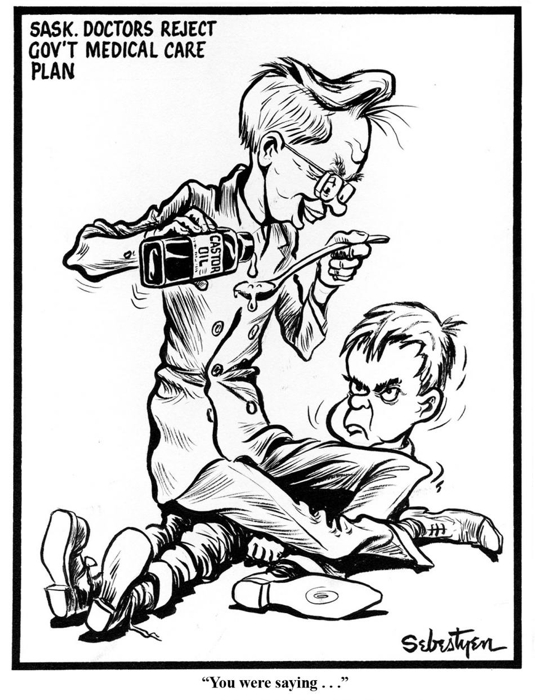
http://saskarchives.com/Doctor_Strike_Curriculum_Sidebar
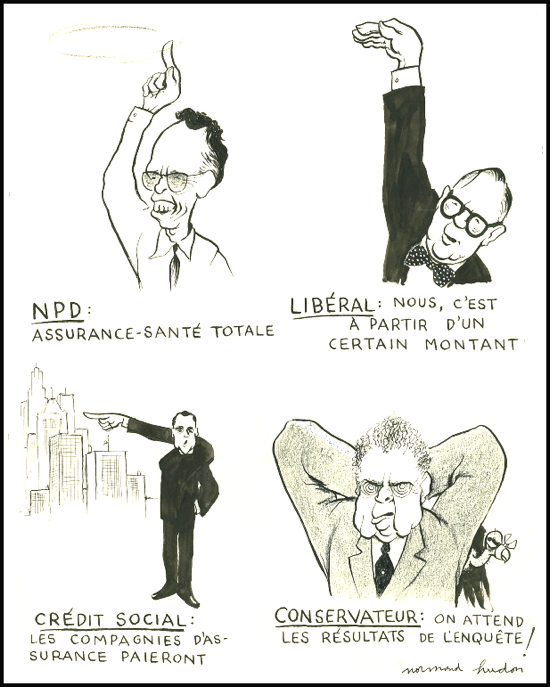
Normand Hudon, Health insurance, where the parties stand, McCord Museum, M997.63.257, 1962
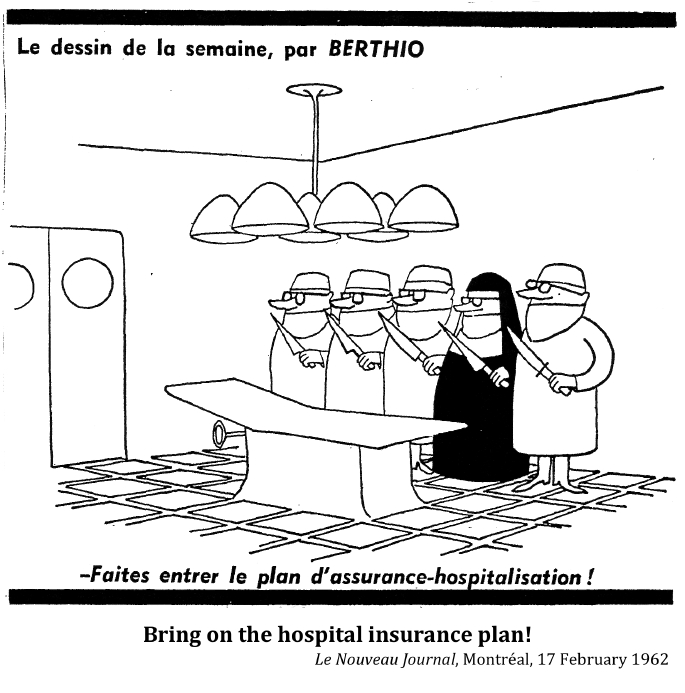


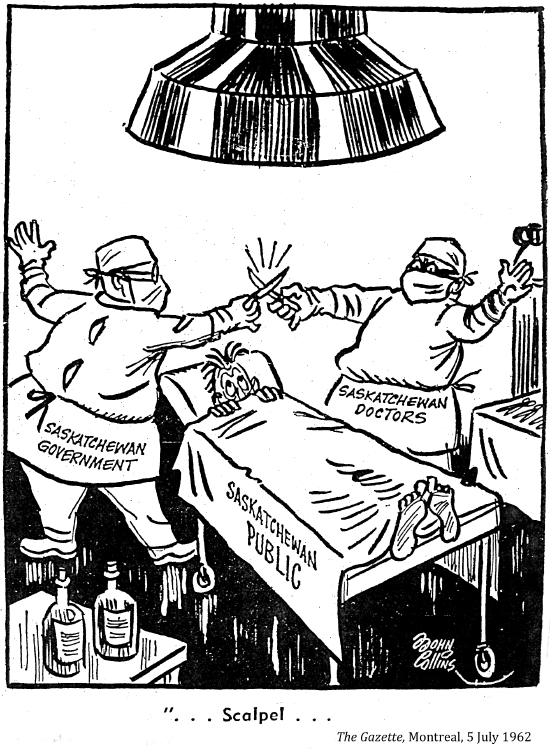
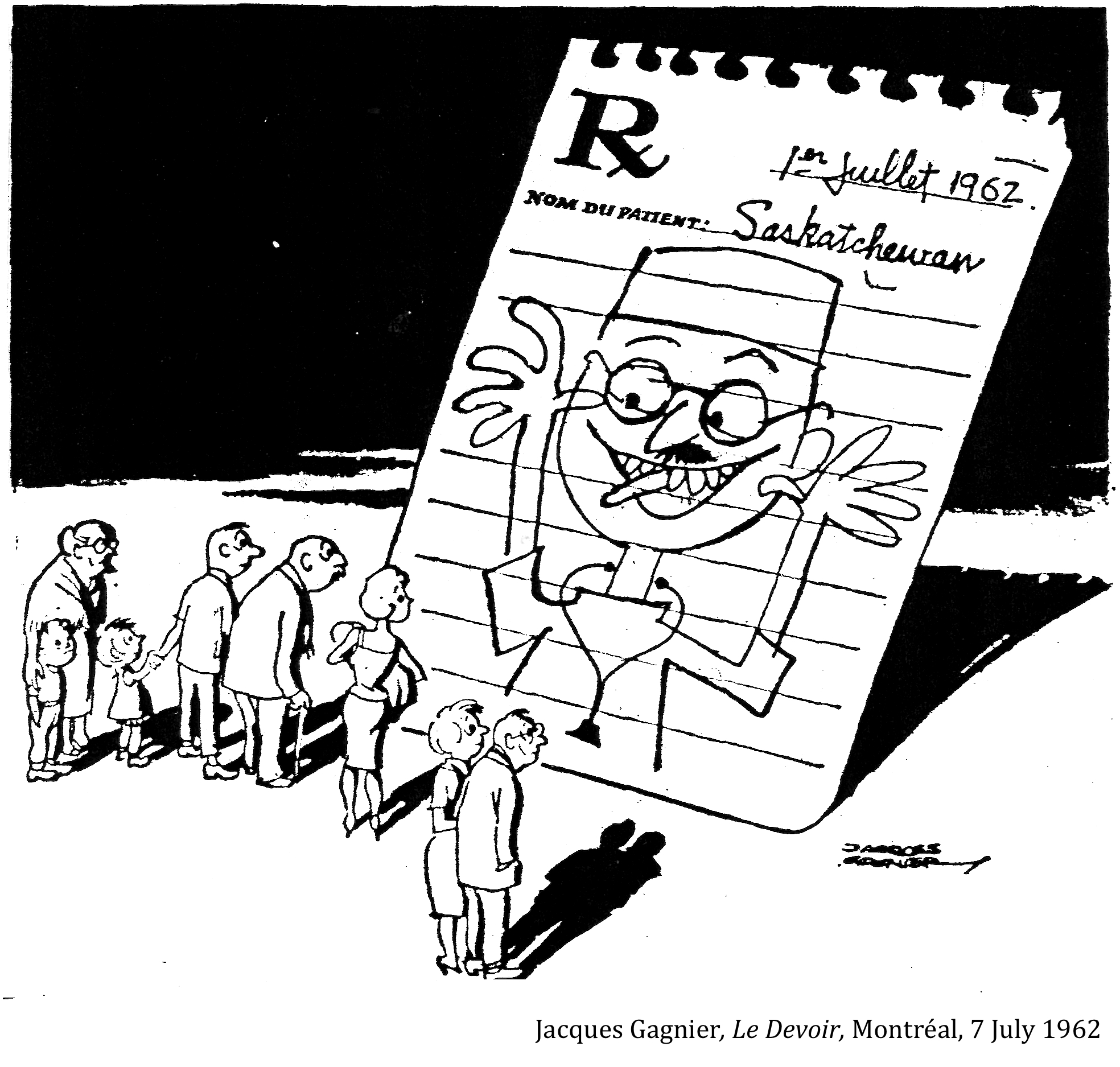



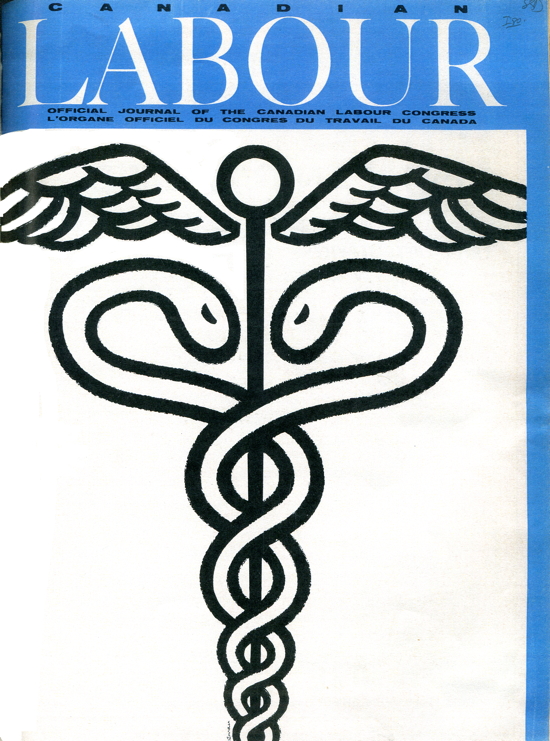
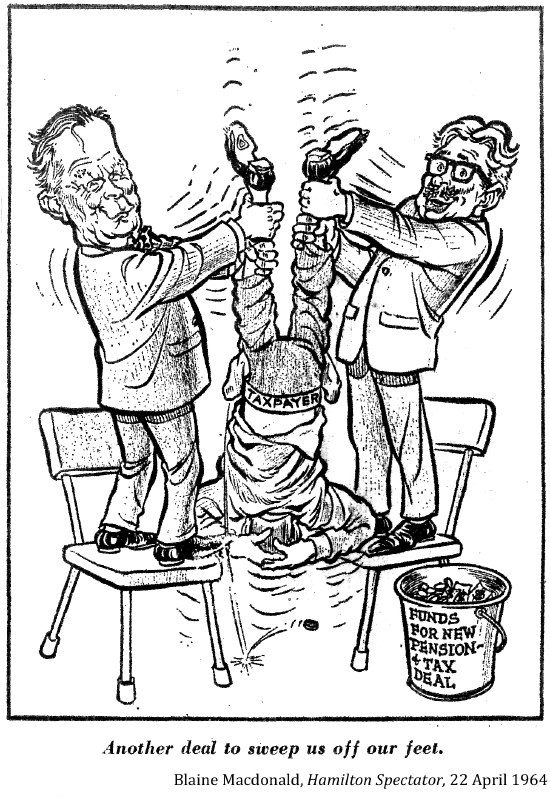

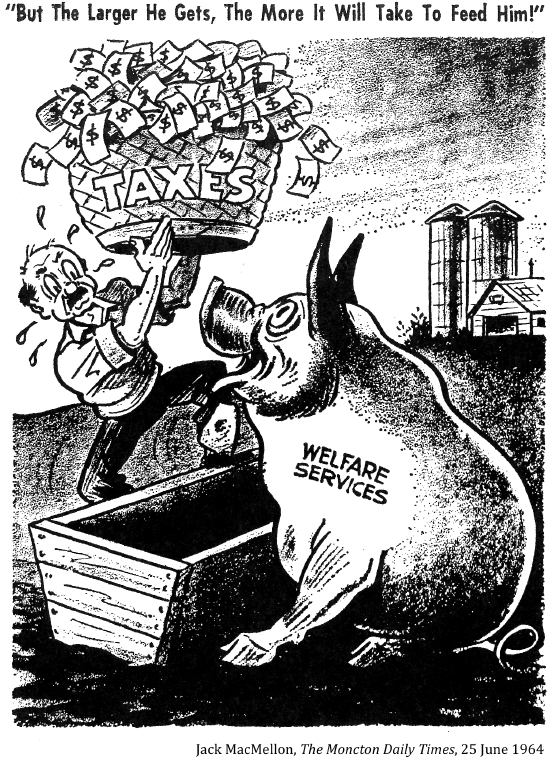
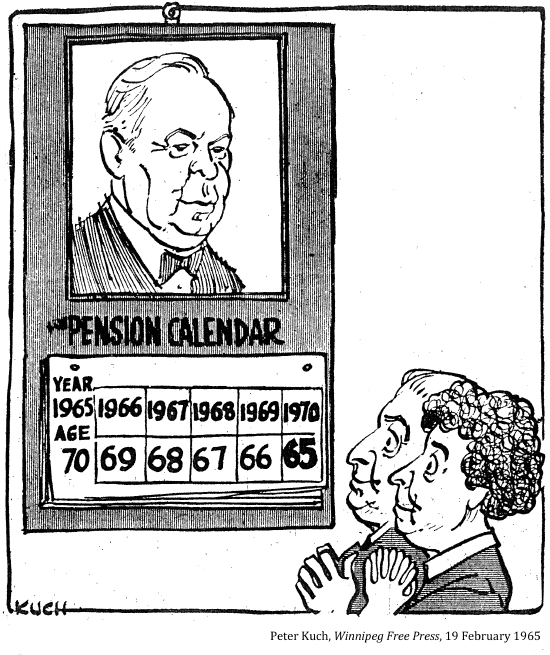


"Society cannot hope for a just and peaceful civilization unless each individual feels the need to be concerned about his fellows. All the great works of charity and humanitarian legislation have always been inspired by a flame of compassion which has burnt brightly in the hearts of men and women."
Queen Elizabeth II, 1966




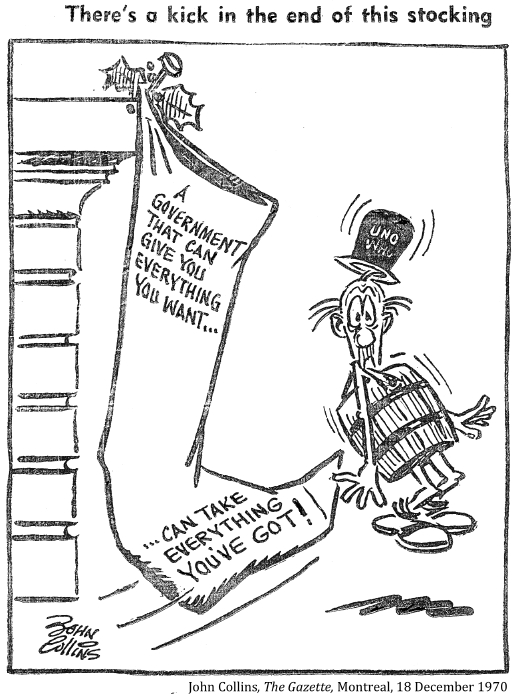


"When you give money to people you call it welfare. When you give money to business you call it grants. Well, I'm changing that. From now on, when we give money to people it'll be grants, and when we give money to business, that's welfare."
Dave Barrett [Premier of BC], The Toronto Star, 8 November 1975
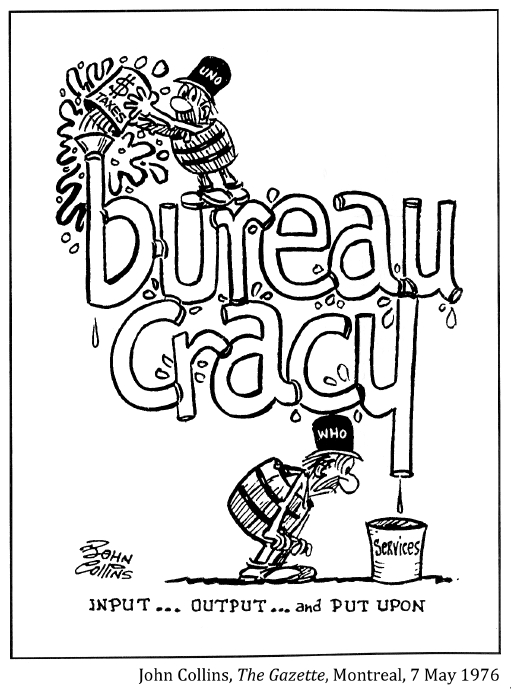


"It is the expectation of Canada's social system to look after the people who cannot take care of themselves. There is no such expectations in the United States."
John Irving, 1990
"[In Canada] our real national "monuments" are neither statues nor places. Our monuments are our social programs, our railways, our CBC."
Brian Mulroney, 1992
"We want American-style taxes and European-style services. The result has been Canadian style deficits, from which we are finally weaning ourselves."
Bob Rae, The Globe and Mail, 23 December 1998
"It is perfectly true that that government is best which governs least. It is equally true that that government is best which provides the most."
Walter Lippmann



|

%20Wellcome.jpg)











2%20Internet%20Archive%20Book%20Images%20No%20restrictions%20via%20Wikimedia%20Commons.jpg)





































































































































































































































